As dog owners, we strive to keep our dogs happy and healthy, but have you ever considered what’s happening inside their bodies? The answer may lie hidden in their gut! The dog’s gut microbiome – the complex community of bacteria, viruses, fungi, and other microorganisms living in the digestive tract—plays a crucial role in your dog’s overall health. Let’s dive into why this invisible ecosystem is so important and the profound impact it can have on your dog.
The hidden power of your dog’s gut microbiome
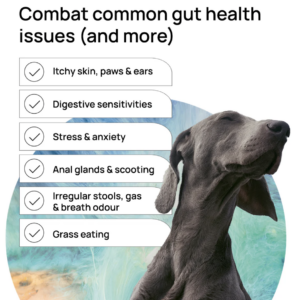
The health of your dog’s gut microbiome – an ecosystem of microorganisms (bacteria, viruses, and fungi) that live in their digestive system – can have a wide impact on overall wellbeing.
- Enhanced Digestion: A balanced microbiome aids in breaking down food, allowing for optimal nutrient absorption. This means your dog gets all the essentials they need for energy and growth.
- Stronger Immune System: A diverse microbiome can help fend off harmful pathogens and support the immune system, reducing the risk of infections and diseases.
- Better Mental Health: Studies suggest that there is a gut-brain connection, and a healthy microbiome may influence your dog’s mood and behavior, potentially reducing anxiety and stress.
- Healthy Weight Management: A well-balanced microbiome can help regulate metabolism and prevent obesity by influencing how fat is stored and energy is utilized.
- Reduced Allergies and Skin Issues: A robust gut flora helps in regulating the immune response, which can lead to fewer allergic reactions and healthier skin.
Are you ready to improve your dog’s health and quality of life in a holistic way?
A balanced gut microbiome is essential for the regulation of mood, support of digestive processes, enhancement of immune function, and improvement of overall well-being of your dog.
Learn more about Biome9 and GutDiscovery® tests here. Here is why….
- Did you know that about 90% of serotonin—the happiness hormone—is produced in a dog’s gut?
- Did you know that a high-quality diet alone is not sufficient?
- Do you know about the relationship between skin irritations, gastric unrest and the gut microbiome?
- Do you know why an overgrowth of ‘good’ bacteria is bad?
- Did you know that the gut microbiome can also affect skin health, joint health, neurological and metabolic health?



Back when dogs foraged for food, they used to enrich their microbiomes the natural way. Today, these critical nutrients and vitamins are missing in modern diets and lifestyles, so microbial communities can quickly go out of balance (dysbiosis).
Why is Gut Microbiome Testing Gaining Attention?
In recent years, the scientific community has become increasingly interested in microbiome testing thanks to advancements in genomic sequencing technologies. These technologies allow for comprehensive and detailed analysis of microbial communities, making it easier to understand their roles in health and disease. Furthermore, as researchers explore the gut microbiome’s impact on overall health, they are uncovering connections to conditions previously thought unrelated, sparking curiosity and funding in this exciting field.
Advancements in Technologies and Scientific Knowledge
Sequencing technologies, such as metagenomics, allow scientists to analyze entire communities of microorganisms without the need for culturing them in the lab. This advancement has opened new doors in microbiome research, providing insights into how these tiny organisms affect health and disease. Additionally, improvements in computational biology and data analysis aid in interpreting vast amounts of microbiome data.
The bacteria in your dog’s gut microbiome are not only responsible for producing chemicals for digestion, but 70% of their immune system lies in the lining of the gut and the chemicals they produce send signals all over the body to control processes from disease control, mood, skin reactions and even cellular repair. Find out more about the fascinating world of bacteria!
The Health Risks of Having a Poor Microbiome in Dogs
- Digestive Problems: An imbalanced microbiome can lead to conditions like diarrhea, constipation, and other gastrointestinal issues, making your dog uncomfortable.
- Increased Illness: A weakened immune system due to microbiome imbalances can leave your dog more susceptible to infections and diseases.
- Weight Fluctuations: Poor gut health can disrupt metabolism, leading to weight gain or loss that can be harmful to your dog’s overall health.
- Behavioral Changes: An unhealthy gut may contribute to mood disorders in dogs, resulting in behavioral issues such as aggression or excessive barking.
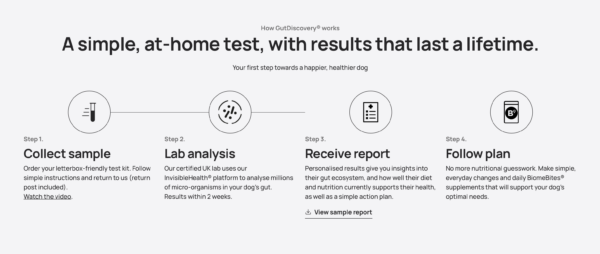
Clinical studies show that over 90% of dogs will experience at least one avoidable symptom of poor microbiome health each year. Is your dog one of them?
- Discover good bacteria supporting your dog’s skin health, digestion, immunity, mood and behaviour.
- See improvements in your dog’s health or your money back
- Transform health with personalised dietary changes, superfood + supplement recommendations
- Instantly actionable insights – Gold standard UK lab sequencing,
A gut microbiome plan designed for your dog. Not someone else’s.
Every Biome9 GutDiscovery® report gives you personalised recommendations on how to keep your dog healthy, happy and full of life, for life.
Get expert advice on how to restore balance to their gut through simple diet and lifestyle changes—plus, their personalised BiomeBites® supplement plan to ensure your dog gets all the gut health nutrients they need in each tasty bite.
Do you want to find out what is going on inside your dog? Get started with an exclusive 15% off on your gut microbiome test.
Why is Gut Microbiome Testing Gaining Attention?
In recent years, the scientific community has become increasingly interested in microbiome testing thanks to advancements in genomic sequencing technologies. These technologies allow for comprehensive and detailed analysis of microbial communities, making it easier to understand their roles in health and disease. Furthermore, as researchers explore the gut microbiome’s impact on overall health, they are uncovering connections to conditions previously thought unrelated, sparking curiosity and funding in this exciting field.
Advancements in Technologies and Scientific Knowledge
Sequencing technologies, such as metagenomics, allow scientists to analyze entire communities of microorganisms without the need for culturing them in the lab. This advancement has opened new doors in microbiome research, providing insights into how these tiny organisms affect health and disease. Additionally, improvements in computational biology and data analysis aid in interpreting vast amounts of microbiome data.
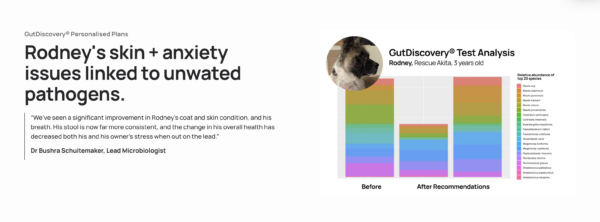
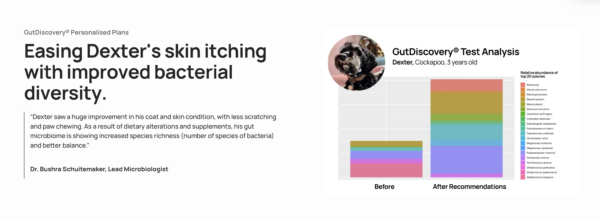
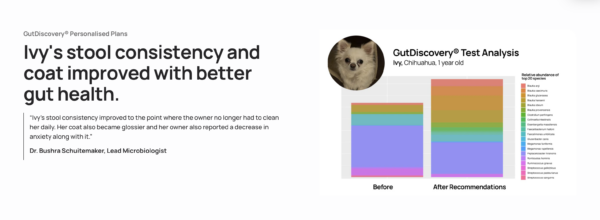
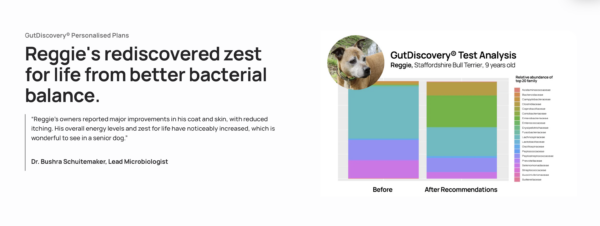
Interesting Scientific Facts About Dog Microbiomes
- Diversity is Key: A diverse microbiome is often a sign of good health. Dogs with a good variety of gut bacteria tend to be healthier, similar to humans.
- Diet Makes a Difference: The type of diet dogs consume can significantly influence their gut microbiome. Laboratory studies have shown that varied dietary patterns can lead to drastic changes in the microbial community.
- Transitional Microbiome: Puppies are born with essentially no gut bacteria but acquire their microbiome through interactions with their environment, mom, and food, making this an essential period for their development.
For more information visit Biome9 and speak to Dr Bushra Schuitemaker, canine microbiologist, about why your dog’s gut microbiome is so important. Be prepared for your eyes to be opened!!
New Research in Gut Microbiome Tests in Dogs
- The Link Between Gut Health and Allergies: Advances in testing technology now allow for better analysis of the gut microbiome in dogs, enabling veterinarians to identify specific imbalances that may correlate with allergic conditions. This personalised approach can lead to targeted treatments, such as dietary changes or tailored probiotic supplements, to help manage allergies more effectively.
- Canine Parvovirus Recovery: Recent studies suggest that dogs with a more diverse gut microbiome may have better outcomes when infected with parvovirus, indicating that gut health could play a role in disease resistance.
- Influence of Probiotics on Behaviour: Research is underway to examine how specific probiotic strains might positively impact behavioural issues in dogs, potentially providing non-pharmaceutical treatment options.
- Dietary Impacts on Microbiome Composition: Ongoing studies focus on understanding how different diets—such as grain-free versus traditional kibble—affect the canine microbiome and in turn impact health outcomes, including skin conditions and allergies.
The Future of Gut Microbiome and Conclusion
As we continue to explore the mysteries of the gut microbiome in our dogs, it becomes increasingly clear that the contents of their digestive system are highly significant. By promoting a healthy microbiome through careful analysis, rebalancing, proper diet, and lifestyle modifications, we can help our dogs live longer, healthier, and happier lives. So, the next time you share a treat with your dog, remember: it’s not just their tail wagging; it’s an entire ecosystem celebrating health!
Find out what is going on inside your dog and get an exclusive 15% off your gut microbiome test.
Disclaimer: The information provided in this blog is for informational purposes only. Read our full Disclaimer.

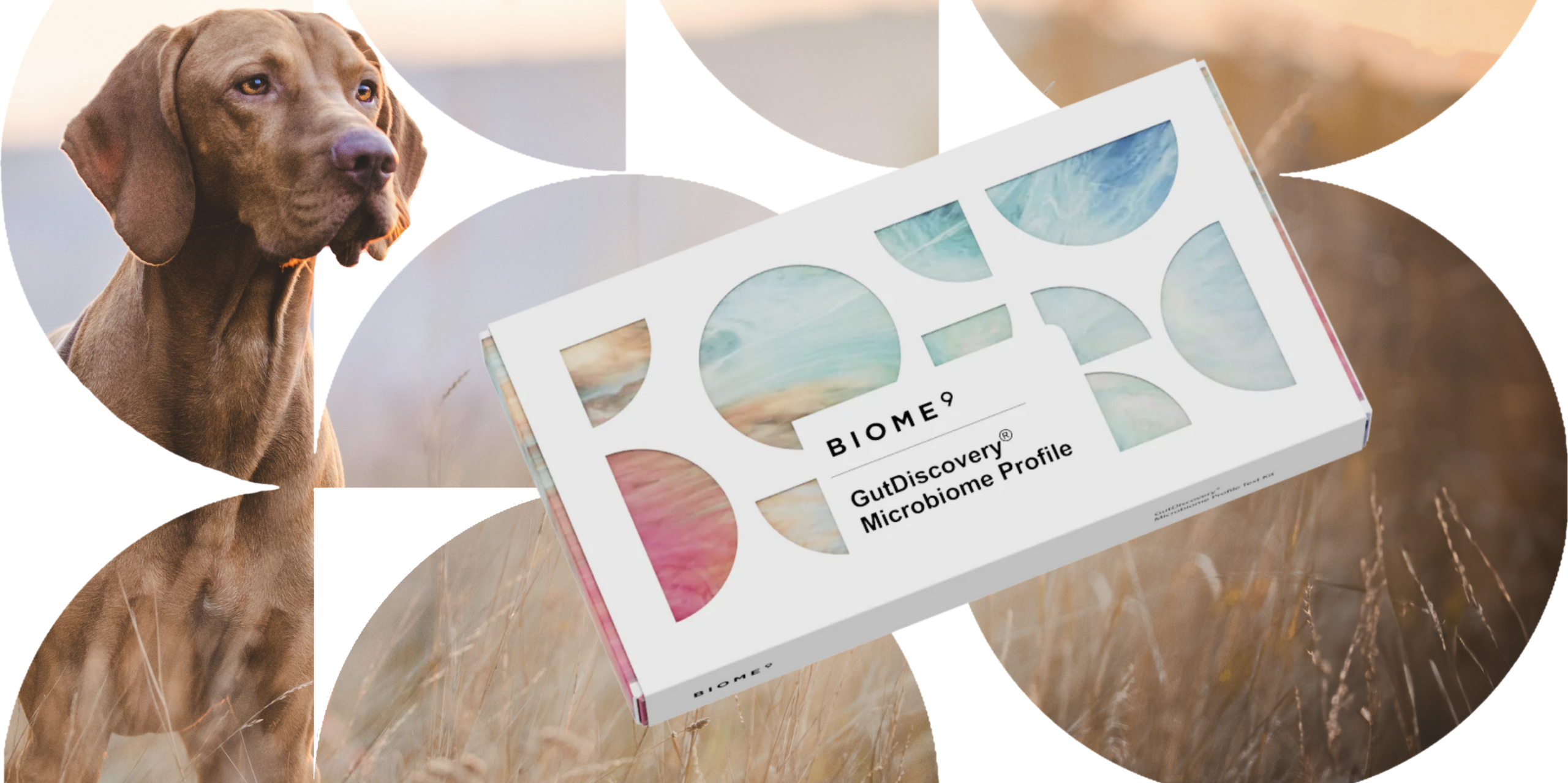






Comments are closed